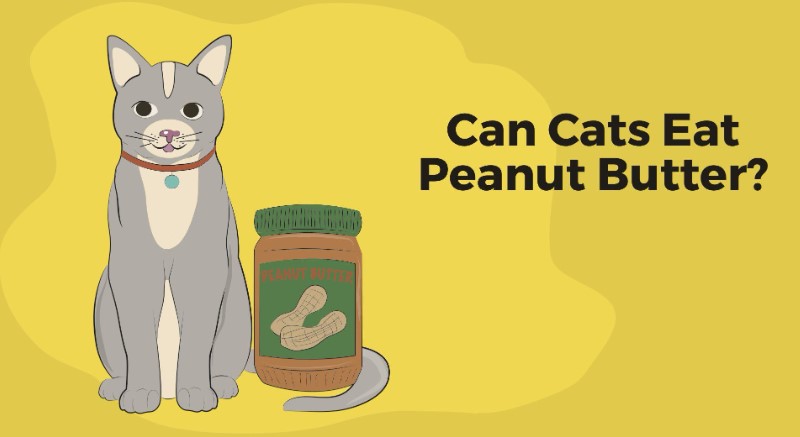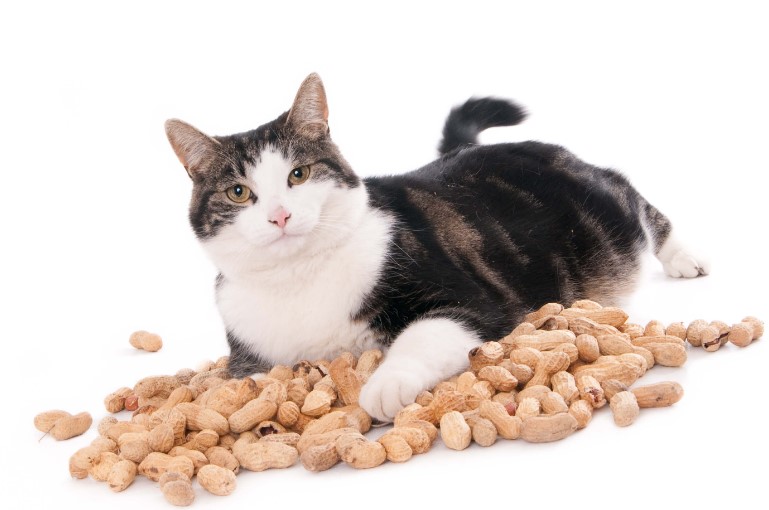Can cats eat peanut butter? Yes, they can, but it is not recommended by veterinarians. It contains Xylitol, a type of sugar found in many foods. Xylitol can cause hypoglycemia, choking, loss of coordination, and even suffocation in cats. For these reasons, it is best to avoid giving peanut butter to your pet.
Sure, peanut butter is delicious—just ask any kid who has a PB&J for lunch. But despite the fact that most kitties are suckers for this salty-sweet spread, it’s not a good idea to let your feline play with the cat food. In fact, most vets don’t recommend feeding cats peanut butter at all.

Xylitol in peanut butter
You may be wondering if the Xylitol in peanut butter will be good for your cat. Cats have digestive systems that are not built to extract vitamins, minerals, or nutrients from foods. These properties will simply pass through the cat’s body without benefiting the cat. Even if your cat is interested in peanut butter, he or she won’t likely eat it, since this is a plant-based food.
Xylitol is a sugar alcohol found in many foods, including nuts, gums, and toothpaste. This sweetener increases insulin release in the pancreas, which leads to hypoglycemia in the blood. The result is that your cat’s blood sugar levels drop to dangerously low levels, causing hypoglycemia, muscle tremors, seizures, and possibly even death.
Xylitol in peanut butter causes hypoglycemia
Xylitol, a sugar substitute found in many foods, is highly toxic for dogs. The ingredient causes the pancreas to release large amounts of insulin, resulting in a dramatic drop in blood sugar. In severe cases, hypoglycemia can result in seizures, muscle tremors, and collapse. This condition is life-threatening and requires emergency medical attention.
Thankfully, if you notice symptoms before your dog displays any clinical signs, the prognosis is good. If you suspect that your dog has ingested peanut butter, consult a veterinarian. Induced vomiting and blood sugar monitoring are common recommendations. IV fluids containing dextrose are also often recommended. In serious cases, treatment may require several days. A veterinarian may prescribe IV fluids.
Xylitol in peanut butter can cause choking
Xylitol is a sweetener commonly used in peanut butter. It is safe for humans, but is toxic to dogs. This sweetener stimulates insulin release and can lead to hypoglycemia and even liver failure. In extreme cases, it can even cause seizures. Fortunately, xylitol is safe for humans to consume in small amounts, but it’s still not recommended.
In addition to causing choking hazards, xylitol can make peanut butter very crunchy. Dogs who eat crunchy peanut butter may choke on the substance. It’s also important to keep an eye on your dog’s diet if you give him peanut butter. Some brands contain sugar-free or natural sweeteners, which is safe for humans. Xylitol is especially dangerous to dogs, since it can lead to seizures.

Xylitol in peanut butter can cause loss of coordination
Xylitol is a sugar substitute that is commonly used in baked goods, toothpaste, and candy. In cats, it can lead to loss of coordination, vomiting, lethargy, and seizures. Similarly, it is harmful to dogs, causing them to have loss of coordination and seizures. Other foods that can be harmful to cats and dogs include macadamia nuts, raisins, and grapes. These foods contain toxins that can lead to rapid kidney failure and death.
Luckily, xylitol is entirely safe for humans, but is completely toxic to cats and dogs. It stimulates the release of insulin in the pancreas, causing dangerously low blood sugar levels in pets. The toxicity of xylitol can occur in as little as 0.1 grams of xylitol per kilogram of body weight. In most cases, xylitol poisoning causes loss of coordination and collapse. Liver damage can occur within hours or days after a pet consumes it.
Many cats love the taste of peanut butter and will happily gobble it up. However, although many owners give their cats peanut butter thinking that offering them a treat is harmless, it may actually be quite harmful for your cat. Before you feed your cat peanut butter, ask yourself why you want to do so. If you’re tempted to feed your pet peanut butter because your cat looks at you with those big eyes and seems like he’s starving, resist the temptation. Even though there is no nutritional value in jelly or meat-filled cat treats, they are still safer for your cat than peanut butter.

